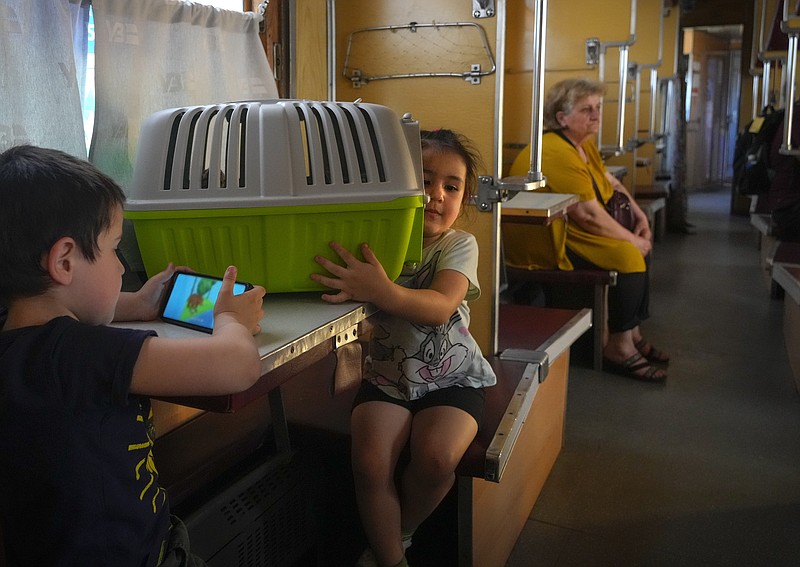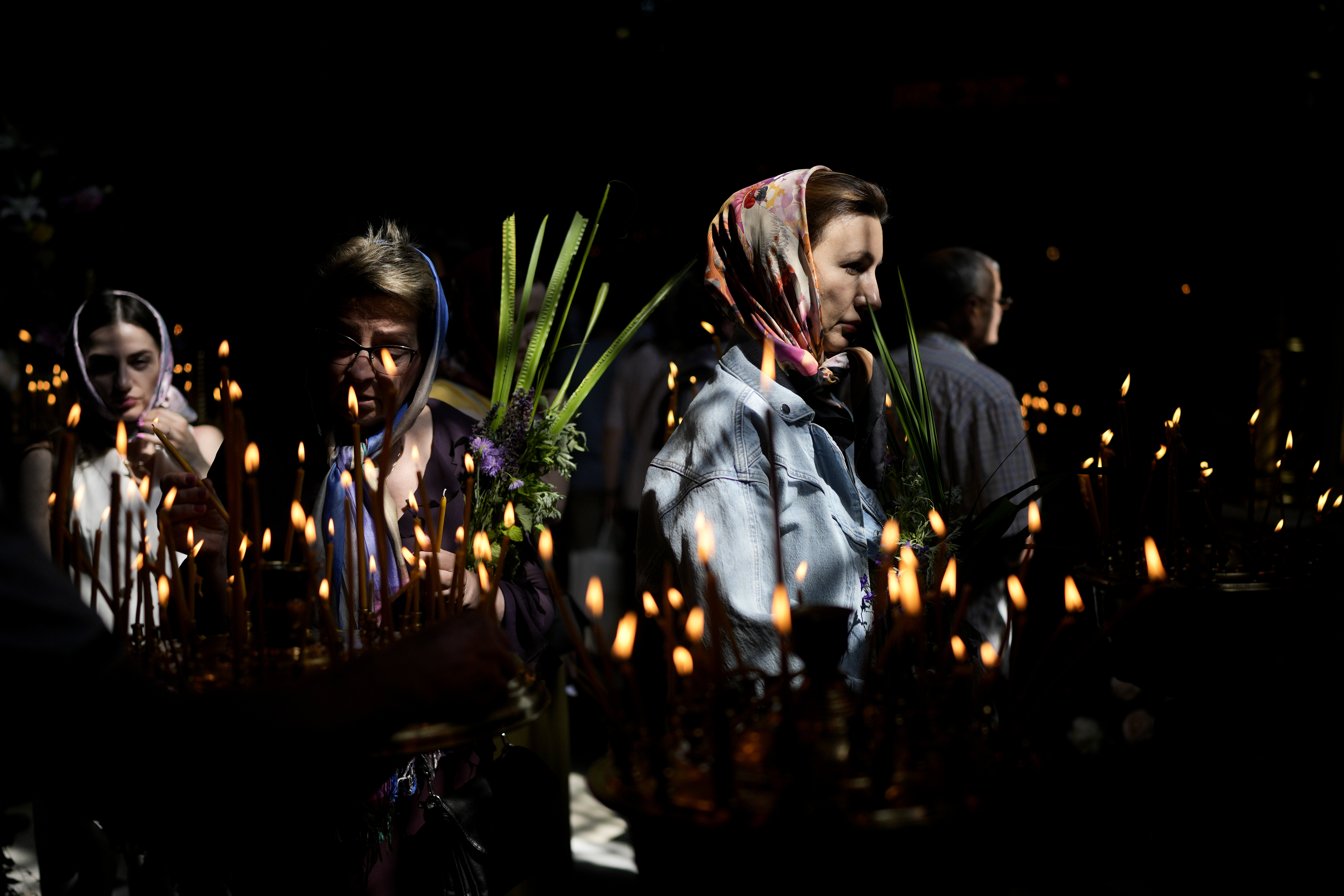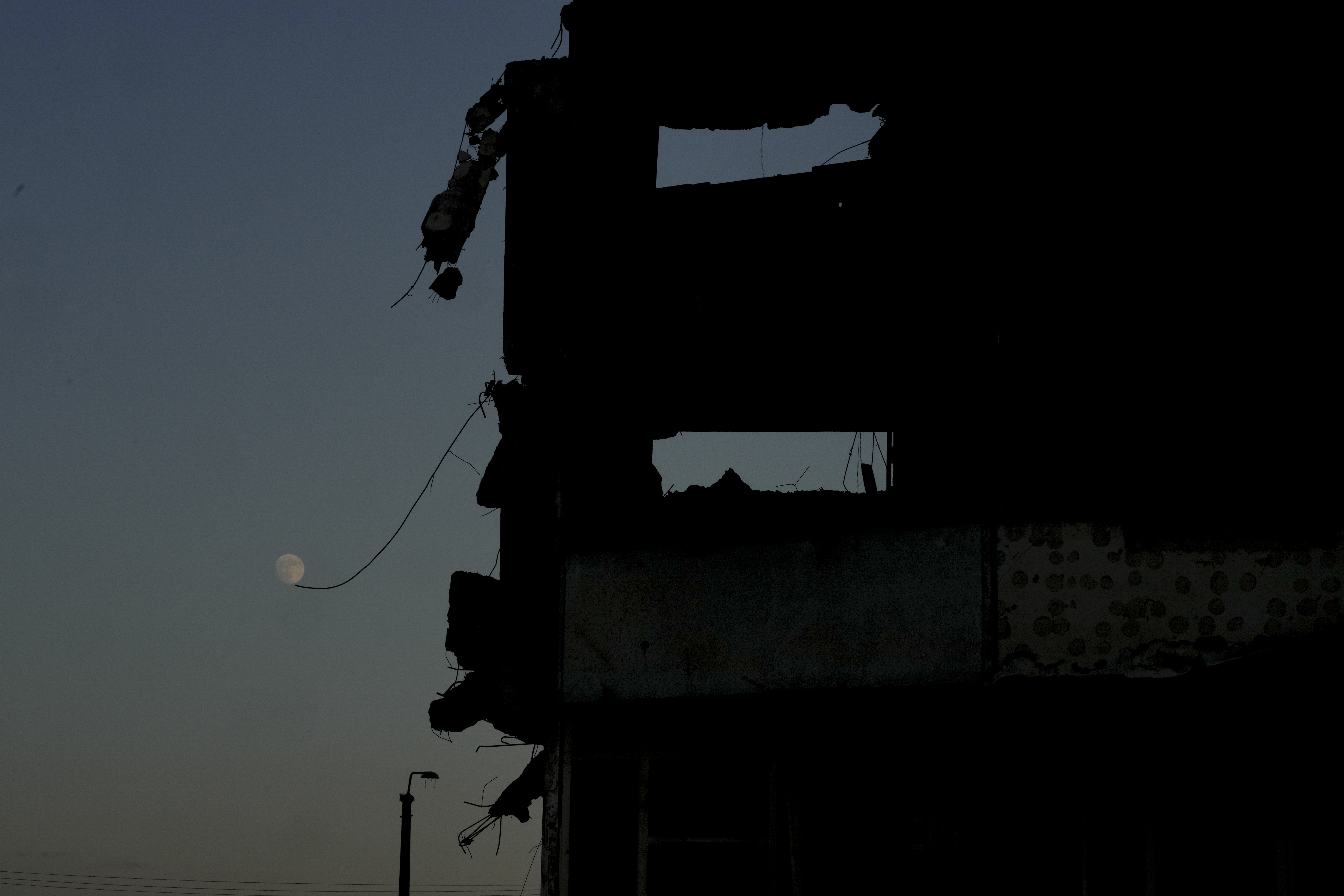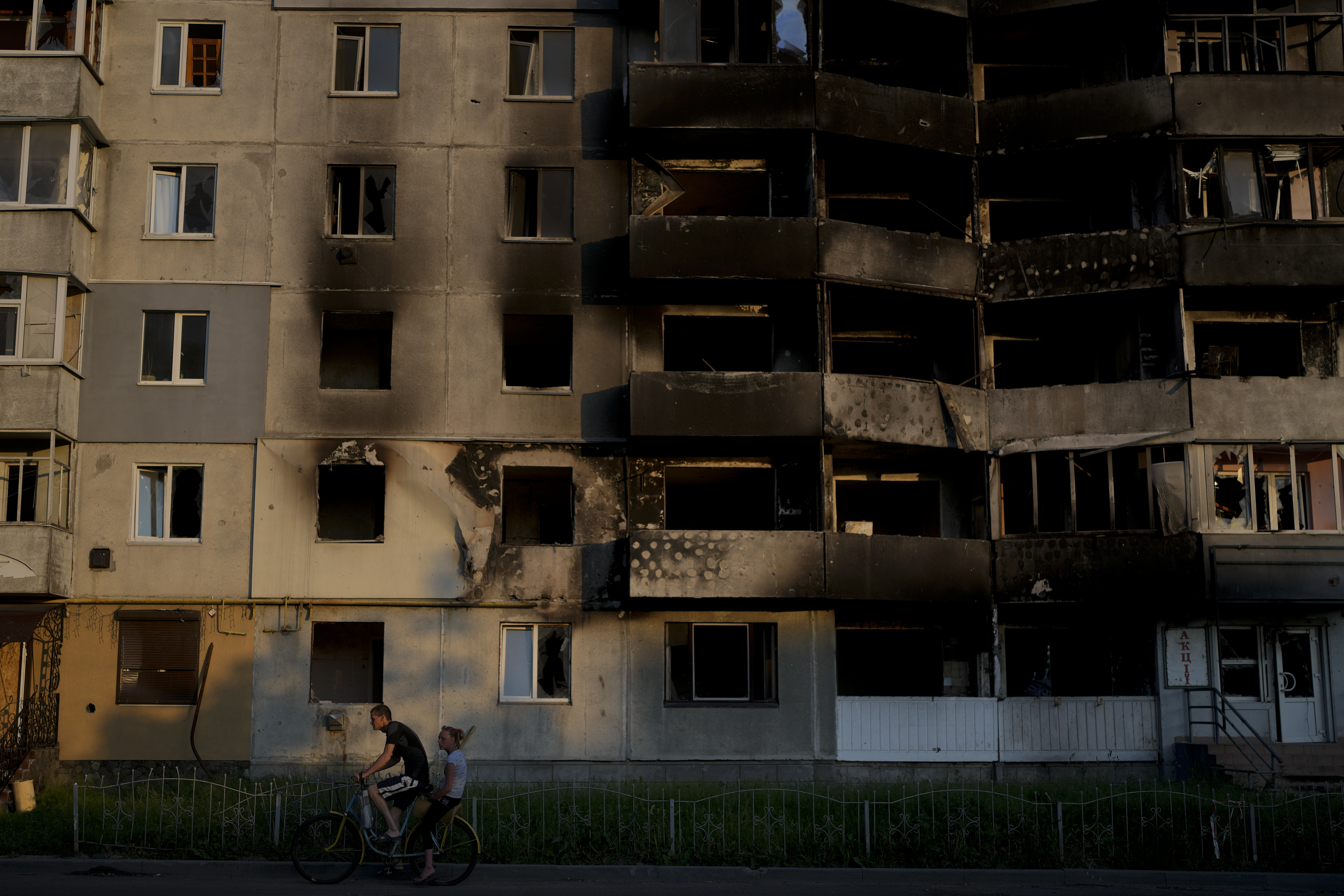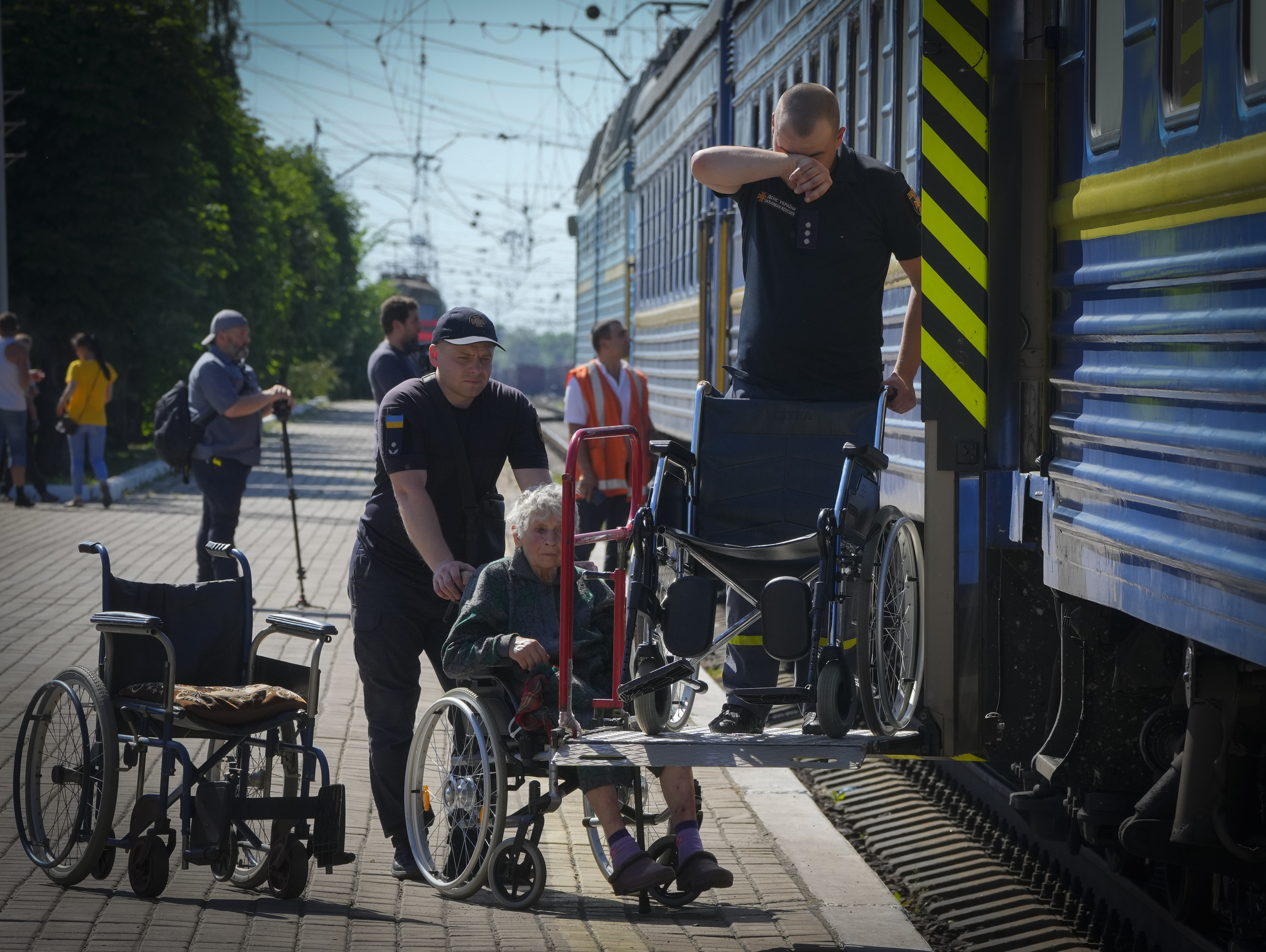KYIV, Ukraine -- Kremlin-installed officials in occupied southern Ukraine celebrated Russia Day on Sunday and began issuing Russian passports to residents in one city who requested them, as Moscow sought to solidify its rule over captured parts of the country.
At one of the central squares in the city of Kherson, Russian bands played a concert to celebrate Russia Day, the holiday that marks Russia's emergence as a sovereign state after the collapse of the Soviet Union, according to Russia's state news agency RIA Novosti.
In the neighboring Zaporizhzhia region, Moscow-installed officials raised a Russian flag in Melitopol's city center.
Ukrainian media reported that few, if any, local residents attended the Russia Day festivities in the two cities.
Russia Day was also celebrated in other occupied parts of Ukraine, including the ravaged southern port of Mariupol, where a new city sign painted in the colors of the Russian flag was unveiled on the outskirts and Russian flags were flown on a highway leading into the city.
Also, the Russia-aligned administration in Melitopol started handing out Russian passports to those who applied for Russian citizenship. RIA Novosti posted video of a Moscow-backed official congratulating new Russian citizens and telling them: "Russia will not go anywhere. We are here for good."
President Vladimir Putin earlier this year issued a decree fast-tracking Russian citizenship for residents of the Kherson and Zaporizhzhia regions. In captured cities in the south and east, Moscow has also introduced the ruble as official currency, aired Russian news broadcasts and taken steps to introduce a Russian school curriculum.
The Kremlin's administrators in the Kherson and Zaporizhzhia regions have voiced plans to incorporate the areas into Russia, despite protests and signs of an insurgency among local residents.
Russian-installed officials Sunday in Melitopol reported an explosion in a garbage bin near the city's police headquarters and said two residents were injured.
Another blast was reported at an electrical substation in the city of Berdyansk, which is also under Russian control. The Kremlin-backed administration pronounced it a terrorist attack, and officials said electricity was shut down in parts of the city.
On the battlefield, Russia said it used missiles to destroy a large depot in western Ukraine that contained anti-tank and air-defense weapons supplied to Kyiv by the U.S. and European countries. It said the attack took place near the city of Chortkiv in the Ternopil region.
Ternopil Gov. Volodymyr Trush said four Russian missiles damaged a military installation and four residential buildings in Chortkiv. More than 20 people were wounded, including a 12-year-old girl, Ukrainian President Volodymyr Zelenskyy said.
"This strike had no tactical or strategic sense, just like the absolute majority of other Russian strikes. It is terror, just terror," he said in a video address.
In light of the strike, Zelenskyy made another plea for modern missile defense systems from the U.S. and other Western countries, saying, "These are lives that could have been saved, tragedies that could have been prevented if Ukraine had been listened to."
Also, heavy fighting continued for control of Sievierodonetsk, an eastern city in Luhansk province with a prewar population of 100,000 that has emerged as central to Russia's campaign to capture the Donbas, Ukraine's industrial heartland.
Russian forces shelled a Sievierodonetsk chemical plant where up to 500 civilians, 40 of them children, were holed up, Luhansk Gov. Serhii Haidai said.
An official with the pro-Moscow, self-proclaimed Luhansk People's Republic, Rodion Miroshnik, said 300 to 400 Ukrainian troops also remained inside the plant. He said that efforts were underway to evacuate the civilians.
Leonid Pasechnik, head of the Luhansk People's Republic, said the Ukrainians making their stand in Sievierodonetsk should save themselves the trouble.
"If I were them, I would already make a decision" to surrender, he said. "We will achieve our goal in any case."
OIL FOR SRI LANKA
Sri Lanka may be compelled to buy more oil from Russia as the island nation hunts desperately for fuel amid an unprecedented economic crisis, the newly appointed prime minister said.
Prime Minister Ranil Wickremesinghe said he would first look to other sources, but would be open to buying more crude from Moscow. Western nations largely have cut off energy imports from Russia in line with sanctions over its war on Ukraine.
In a wide-ranging interview with The Associated Press on Saturday, Wickremesinghe also indicated he would be willing to accept more financial help from China, despite his country's mounting debt. And while he acknowledged that Sri Lanka's current predicament is of "its own making," he said the war in Ukraine is making it even worse -- and that dire food shortages could continue until 2024. He said Russia had also offered wheat to Sri Lanka.
Wickremesinghe, who is also Sri Lanka's finance minister, spoke to the AP in his office in the capital, Colombo, one day shy of a month after he took over for a sixth time as prime minister. Appointed by President Gotabaya Rajapaksa to resolve an economic crisis that has nearly emptied the country's foreign exchange reserves, Wickremesinghe was sworn in after days of violent protests last month forced his predecessor, Rajapaksa's brother Mahinda Rajapaksa, to step down and seek safety from angry crowds at a naval base.
Sri Lanka has amassed $51 billion in foreign debt, but has suspended repayment of nearly $7 billion due this year. The crushing debt has left the country with no money for basic imports, which means citizens are struggling to access basic necessities such as food, fuel, medicine -- even toilet paper and matches. The shortages have spawned rolling power outages, and people have been forced to wait days for cooking gas and gasoline in lines that stretch for miles.
Two weeks ago, the country bought a 99,000-ton shipment of Russian crude to restart its only refinery, the energy minister told reporters.
Wickremesinghe did not comment directly on those reports, and said he did not know whether more orders were in the pipeline. But he said Sri Lanka desperately needs fuel, and is currently trying to get oil and coal from the country's traditional suppliers in the Middle East.
"If we can get from any other sources, we will get from there. Otherwise [we] may have to go to Russia again," he said.
Officials are negotiating with private suppliers, but Wickremesinghe said one issue they face is that "there is a lot of oil going around which can be sourced back informally to Iran or to Russia."
"Sometimes we may not know what oil we are buying," he said. "Certainly we are looking at the Gulf as our main supply."
Since Russia's invasion of Ukraine in late February, global oil prices have skyrocketed. While Washington and its allies are trying to cut financial flows supporting Moscow's war effort, Russia is offering its crude at a steep discount, making it extremely enticing to a number of countries.
Like some other South Asian nations, Sri Lanka has remained neutral on the war in Europe.
Sri Lanka has received and continues to reach out to numerous countries for help -- including the most controversial, China, currently the country's third-largest creditor. Opposition figures have accused the president and the former prime minister of taking on a slew of Chinese loans for splashy infrastructure projects that have since failed to generate profit, instead adding to the country's debt.
Information for this article was contributed by Krutika Pathi, Bharatha Mallawarachi and Krishan Francis of The Associated Press.
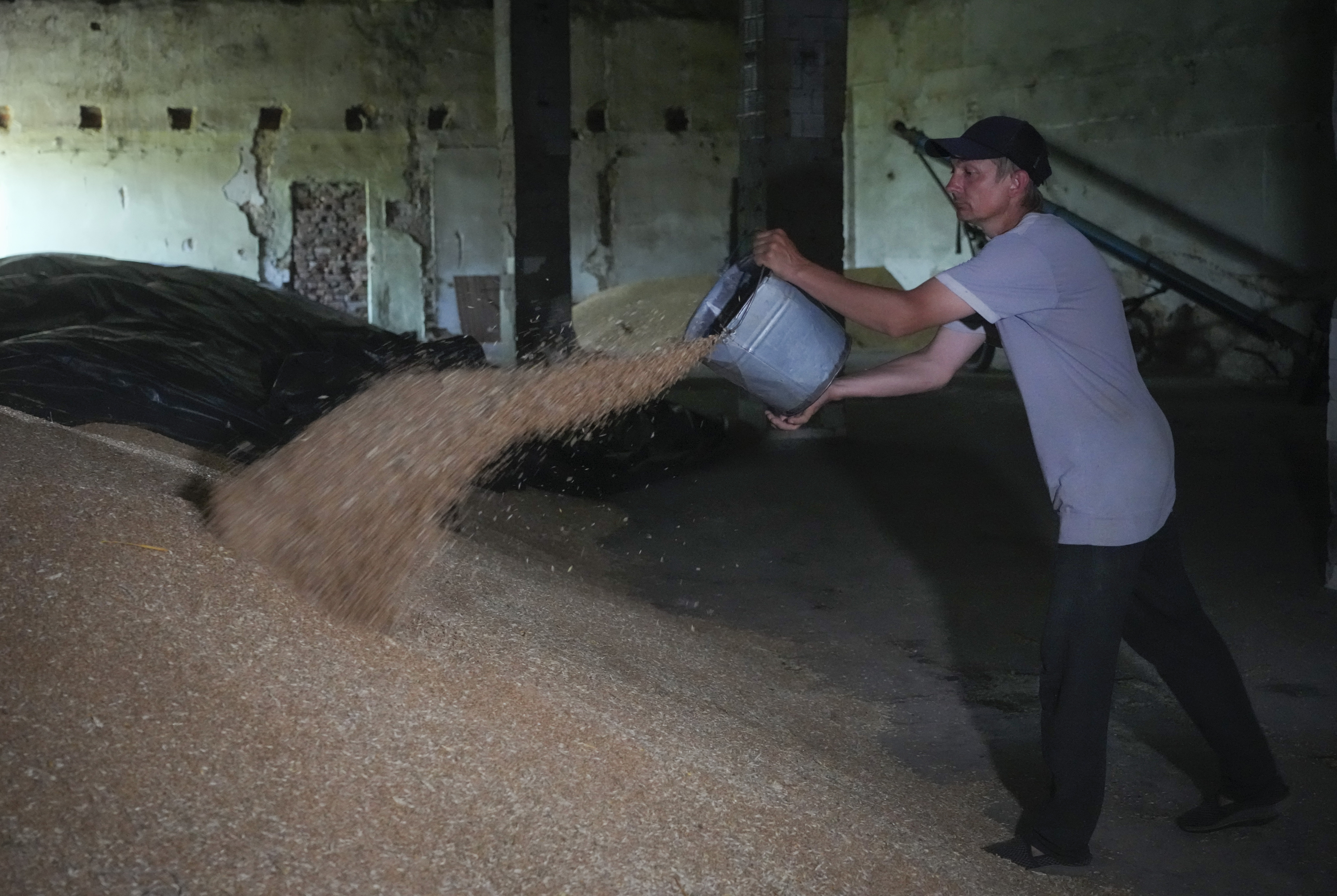 Farmer Serhiy throws grains from a bucket in his barn in the village of Ptyche in eastern Donetsk region, Ukraine, Sunday, June 12, 2022. Serhiy claims he cannot sell his grain because nobody wants to come to the area which has been suffering from the Russian shelling. Ukraine is one of the world’s largest exporters of wheat and corn but Russia's invasion and a blockade of its ports have halted much of that flow. (AP Photo/Efrem Lukatsky)
Farmer Serhiy throws grains from a bucket in his barn in the village of Ptyche in eastern Donetsk region, Ukraine, Sunday, June 12, 2022. Serhiy claims he cannot sell his grain because nobody wants to come to the area which has been suffering from the Russian shelling. Ukraine is one of the world’s largest exporters of wheat and corn but Russia's invasion and a blockade of its ports have halted much of that flow. (AP Photo/Efrem Lukatsky)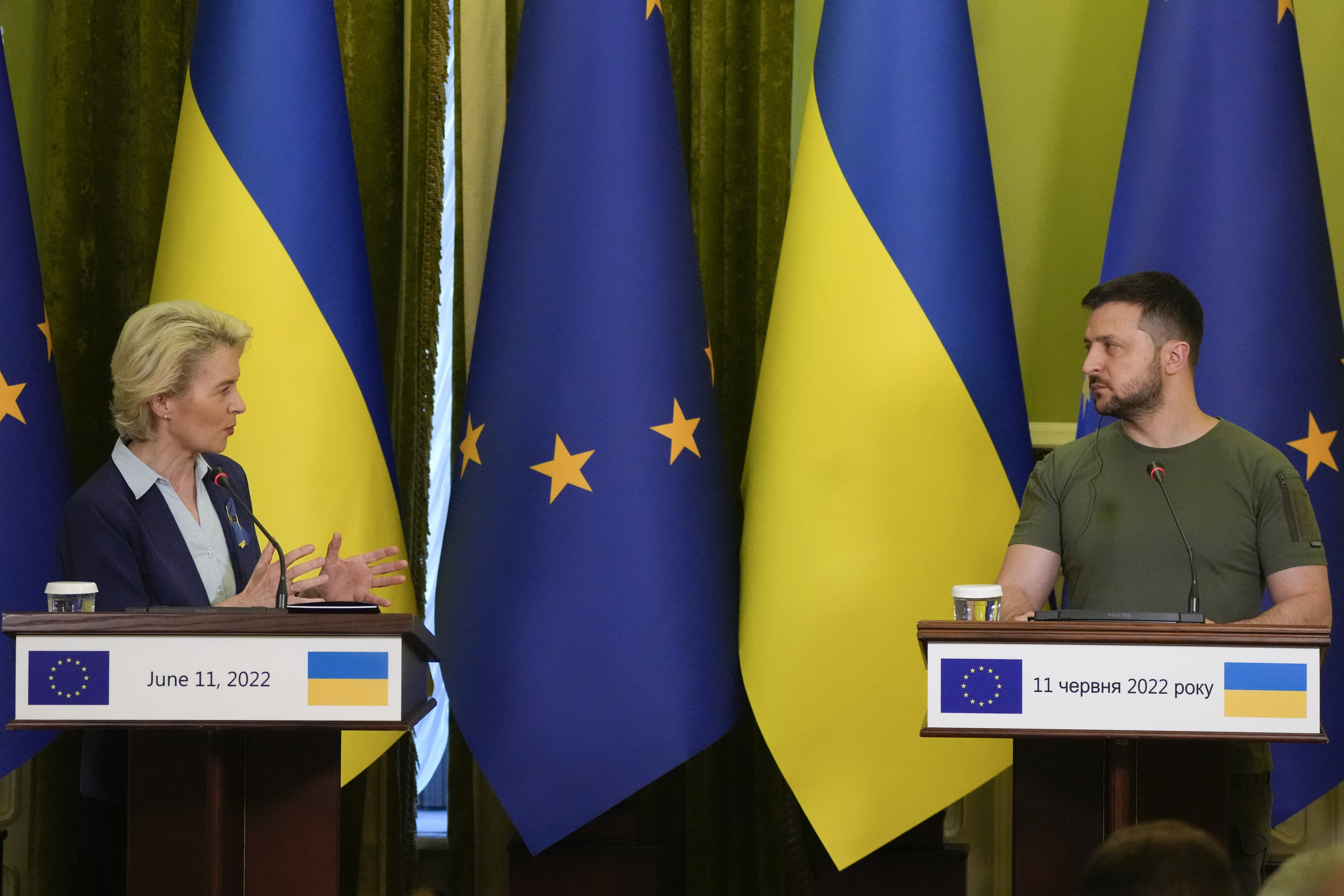 European Commission President Ursula von der Leyen, left, speaks during a joint press conference with Ukraine President Volodymyr Zelenskyy in Kyiv, Ukraine, Saturday, June 11, 2022. Von der Leyen is making her second visit to Ukraine since Russia invaded its neighbor. She was one of the first European leaders to go to Ukraine during the war. (AP Photo/Natacha Pisarenko)
European Commission President Ursula von der Leyen, left, speaks during a joint press conference with Ukraine President Volodymyr Zelenskyy in Kyiv, Ukraine, Saturday, June 11, 2022. Von der Leyen is making her second visit to Ukraine since Russia invaded its neighbor. She was one of the first European leaders to go to Ukraine during the war. (AP Photo/Natacha Pisarenko)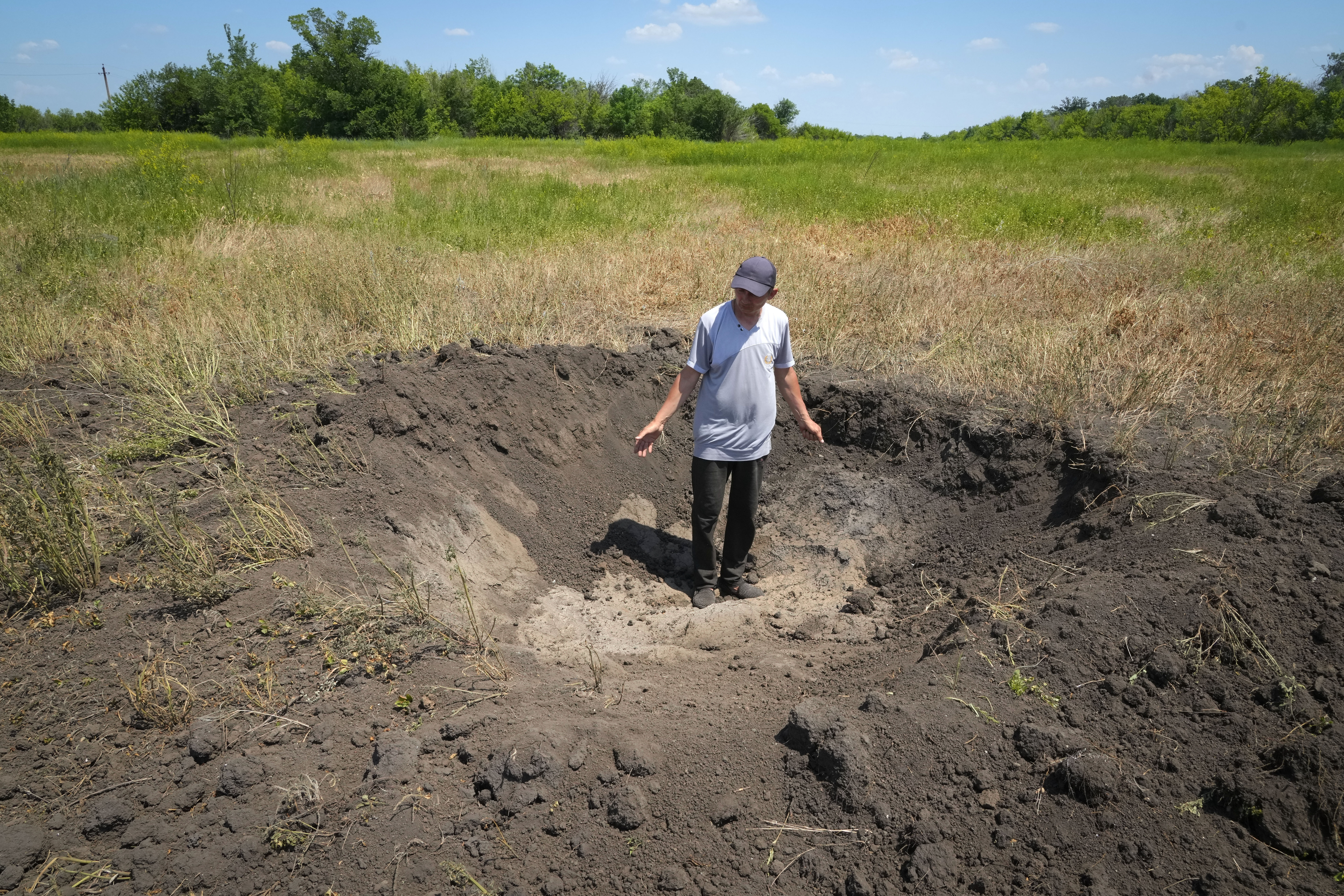 Farmer Serhiy, a local grain producer, shows a crater left by a Russian shell on his field in the village of Ptyche in eastern Donetsk region, Ukraine, Sunday, June 12, 2022. Serhiy claims he cannot sell his grains because nobody wants to come to the area which has been under Russian shelling. Ukraine is one of the world’s largest exporters of wheat and corn but Russia's invasion and a blockade of its ports have halted much of that flow. (AP Photo/Efrem Lukatsky)
Farmer Serhiy, a local grain producer, shows a crater left by a Russian shell on his field in the village of Ptyche in eastern Donetsk region, Ukraine, Sunday, June 12, 2022. Serhiy claims he cannot sell his grains because nobody wants to come to the area which has been under Russian shelling. Ukraine is one of the world’s largest exporters of wheat and corn but Russia's invasion and a blockade of its ports have halted much of that flow. (AP Photo/Efrem Lukatsky)Gallery: Images from Ukraine, month 4
